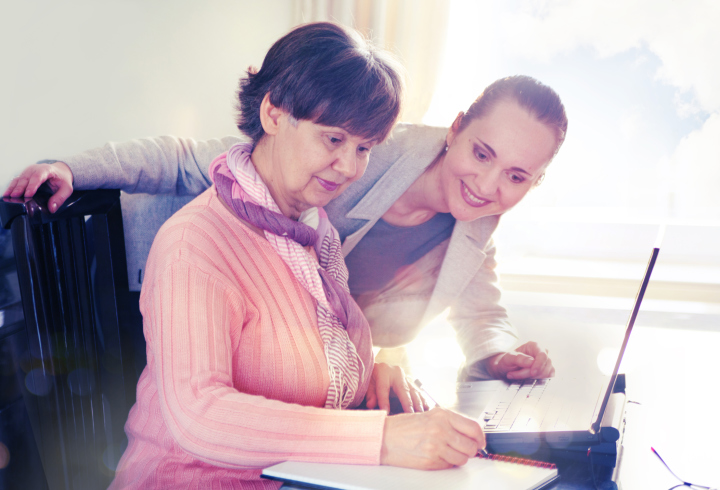 Older adults may be better than young people at correcting mistakes, according to a study published in Psychological Science. The research contradicts common stereotypes about learning, including the notion that older people are less able to learn than young people.
Older adults may be better than young people at correcting mistakes, according to a study published in Psychological Science. The research contradicts common stereotypes about learning, including the notion that older people are less able to learn than young people.
Does Age Aid Learning?
Researchers wanted to look at both brain activity measures and behavioral components of learning. They recruited 44 young adults around age 24 and 45 older adults around age 74. None of the participants had a history of neurological or psychiatric issues.
Researchers fitted the participants with an electroencephalogram (EEG) cap, then presented them with a series of general knowledge questions (for example, “Which ancient city was home to the Hanging Gardens?”). The investigators encouraged participants to guess when they were unsure, but saying “I don’t know” was also an option. Each participant rated their confidence in each answer on a 7-point scale. Researchers then gave them the correct answer while measuring brain activity.
The trial continued until each participant had made at least 40 errors—20 on high-confidence answers and 20 on low-confidence answers. Older adults needed an average of 244 questions to reach this threshold, while younger adults needed about 230.
In a second trial, researchers removed the EEG cap and retested the participants by asking them 20 questions that produced high-confidence errors, 20 questions that produced low-confidence errors, and 20 unanswered questions.
Older adults got 41% of the questions correct, and younger adults answered 26% correctly. Both groups reported greater confidence in the answers they got right, but older adults reported higher overall confidence in their answers. Older adults also corrected more of their errors in the second trial, suggesting the older age group may be more likely to learn from previous mistakes.Age, Learning, and the Brain
EEG results showed larger quantities of a P3a component—a brain wave associated with attentive processing—for both age groups when receiving feedback on high-confidence errors compared to low-confidence errors. When receiving feedback on low-confidence errors, older adults produced larger P3a relative to their younger counterparts.
The research team says these findings suggest younger and older adults may display different attention patterns, but older adults may focus more on correcting mistakes. Older adults may also be less susceptible to the hypercorrection effect—a previous finding that says high-confidence errors are more likely to be corrected than low-confidence errors.
In total, older adults corrected more of their mistakes than younger adults, suggesting they may be more adept at updating their existing knowledge with new information than the stereotype about older adults’ cognitive abilities implies.
References:
- Older beats younger when it comes to correcting mistakes. (n.d.). Retrieved from http://www.psychologicalscience.org/index.php/news/releases/older-beats-younger-when-it-comes-to-correcting-mistakes.html
- Older people better at correcting their mistakes. (2015, October 29). Retrieved from http://www.ndtv.com/world-news/older-people-better-at-correcting-their-mistakes-1237735

The preceding article was solely written by the author named above. Any views and opinions expressed are not necessarily shared by GoodTherapy.org. Questions or concerns about the preceding article can be directed to the author or posted as a comment below.

 Same Difference: Embracing a Diversity of Learning Styles
Same Difference: Embracing a Diversity of Learning Styles How Boys' Learning Styles Differ (and How We Can Support Them)
How Boys' Learning Styles Differ (and How We Can Support Them) Life's Most Worthwhile Lesson: Learning to Love and Be Loved
Life's Most Worthwhile Lesson: Learning to Love and Be Loved

Please fill out all required fields to submit your message.
Invalid Email Address.
Please confirm that you are human.
Leave a Comment
By commenting you acknowledge acceptance of GoodTherapy.org's Terms and Conditions of Use.